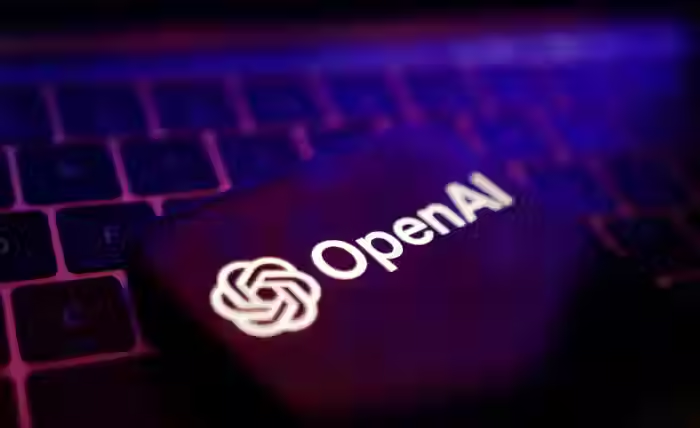OpenAI's New AI Agent 'Operator': The Future of Web Automation or Google's Worst Nightmare
- Tech Brief

- Jan 27
- 4 min read

OpenAI has introduced "Operator," an AI agent designed to autonomously perform web-based tasks on behalf of users. Leveraging a model called Computer-Using Agent (CUA), which combines GPT-4o's vision capabilities with advanced reasoning, Operator can interact with web elements such as buttons, menus, and text fields to execute tasks like ordering groceries, filing expense reports, and making reservations. This development signifies a notable advancement in AI, aiming to enhance efficiency in both personal and professional settings.
OpenAI
Currently available as a "research preview" to ChatGPT Pro users in the United States for $200 per month, Operator is still in its experimental phase and may encounter challenges such as slow performance and occasional errors. OpenAI acknowledges these limitations and is focusing on refining the agent's capabilities before a broader release. The company is also collaborating with partners like Instacart, Uber, eBay, Priceline, OpenTable, and Etsy to enhance Operator's functionality and accessibility.
WSJ
The emergence of AI agents like Operator has sparked discussions about their potential impact on various industries, including digital advertising and the gig economy. Analysts suggest that such tools could streamline processes for services like Instacart and DoorDash, potentially boosting growth in gig economy bookings. However, there are concerns that Operator might reduce user traffic on retail websites, affecting opportunities for product discovery and digital advertising revenues, particularly impacting companies like Google.
Investopedia
Despite its promise, Operator faces challenges similar to those encountered in the development of autonomous technologies, such as reliability and user trust. Early testers have reported that while Operator can perform tasks like filling out forms and ordering groceries, it can be slow and occasionally gets confused. OpenAI is addressing these issues by emphasizing user control, privacy, and security, incorporating features like "takeover mode" for sensitive actions and requiring user approval for higher-stakes tasks.
New York Magazine
As AI agents become more integrated into daily life, their success will depend on their ability to operate seamlessly and gain widespread acceptance from both businesses and consumers. OpenAI's strategy with Operator involves balancing realistic expectations with ambitious long-term goals, ensuring continuous development while managing public and investor enthusiasm.
WSJ
Sources
1. OpenAI's 'Operator' Agent Can Buy Groceries, File Expense Reports
OpenAI has launched "Operator," an AI agent capable of automating tasks such as purchasing groceries and filing expense reports. Operator interacts with the internet through its own browser, mimicking human actions like clicking, scrolling, and typing. Initially available to ChatGPT Pro users in the U.S. for $200 per month, Operator is in its "research preview" phase and may still make mistakes. OpenAI is partnering with companies like Instacart, Uber, and eBay to enhance the agent's capabilities. The company emphasizes privacy, security, and user control, incorporating features like "takeover mode" for sensitive actions.
WSJ
2. What Are AI 'Agents' For?
OpenAI's "Operator" aims to revolutionize AI agents by enabling them to perform browser-based tasks like completing forms, ordering groceries, and creating memes. However, its current iteration is slow, unreliable, and often gets confused, echoing early challenges faced by autonomous car technology. Despite these issues, significant investment and talent are backing efforts to enhance the functionality and reliability of these AI agents, reflecting their potential to automate complex, multi-step tasks. The introduction of Operator has sparked discussions about the future of AI agents, their integration with other services, and their potential impact on the job market. The success of such tools hinges on their ability to operate seamlessly and gain widespread acceptance from businesses and consumers alike. As OpenAI navigates these challenges, their strategy seems to involve balancing realistic expectations with ambitious long-term goals, ensuring continuous development while managing investor and public enthusiasm.
New York Magazine
3. OpenAI unveils tool to automate web tasks as AI agents take center-stage
OpenAI has introduced a new AI tool named "Operator" that automates web tasks by interacting with on-screen elements such as buttons, menus, and text fields. Announced on January 23, 2025, Operator is seen as a significant step in AI development, enabling models to use tools typically employed by humans and expanding the potential for various new applications. It can perform tasks like creating to-do lists and assisting with vacation planning and requires user input for certain actions, such as logging into websites. Initially available to Pro users in the U.S. as a research preview, this tool exemplifies the growing focus on AI agents, which execute actions autonomously. On the same day, OpenAI's rival Perplexity launched its own agent-based assistant for Android devices, capable of functions such as booking reservations and setting reminders. This announcement follows the trend of integrating advanced AI in consumer technology, as seen with Apple's incorporation of Apple Intelligence and ChatGPT into Siri. The development signals a shift towards practical, autonomous AI applications driven by improved reasoning approaches.
Reuters
4. OpenAI's New AI Agent Can Order Groceries for You. Analysts Say That's Bad News for Google.
OpenAI's new AI agent, Operator, has significant implications for various markets including Google Search, gig economy companies like Uber, and digital advertisers. Launched for users of OpenAI's $200 monthly Pro plan, with plans to extend to the $20 monthly Plus tier and integration with ChatGPT, Operator can order groceries and book travel via a user's browser. Analysts suggest this could revolutionize the ordering process for services like Instacart and DoorDash, potentially boosting growth in gig economy bookings, projected to reach $240 billion in 2025. However, Operator could reduce user traffic on retail websites, affecting opportunities for product discovery and digital advertising revenues, particularly impacting Google. This competition is heightened by Google's own AI project, Project Mariner, and Meta's anticipated Llama 4 platform.

Comments